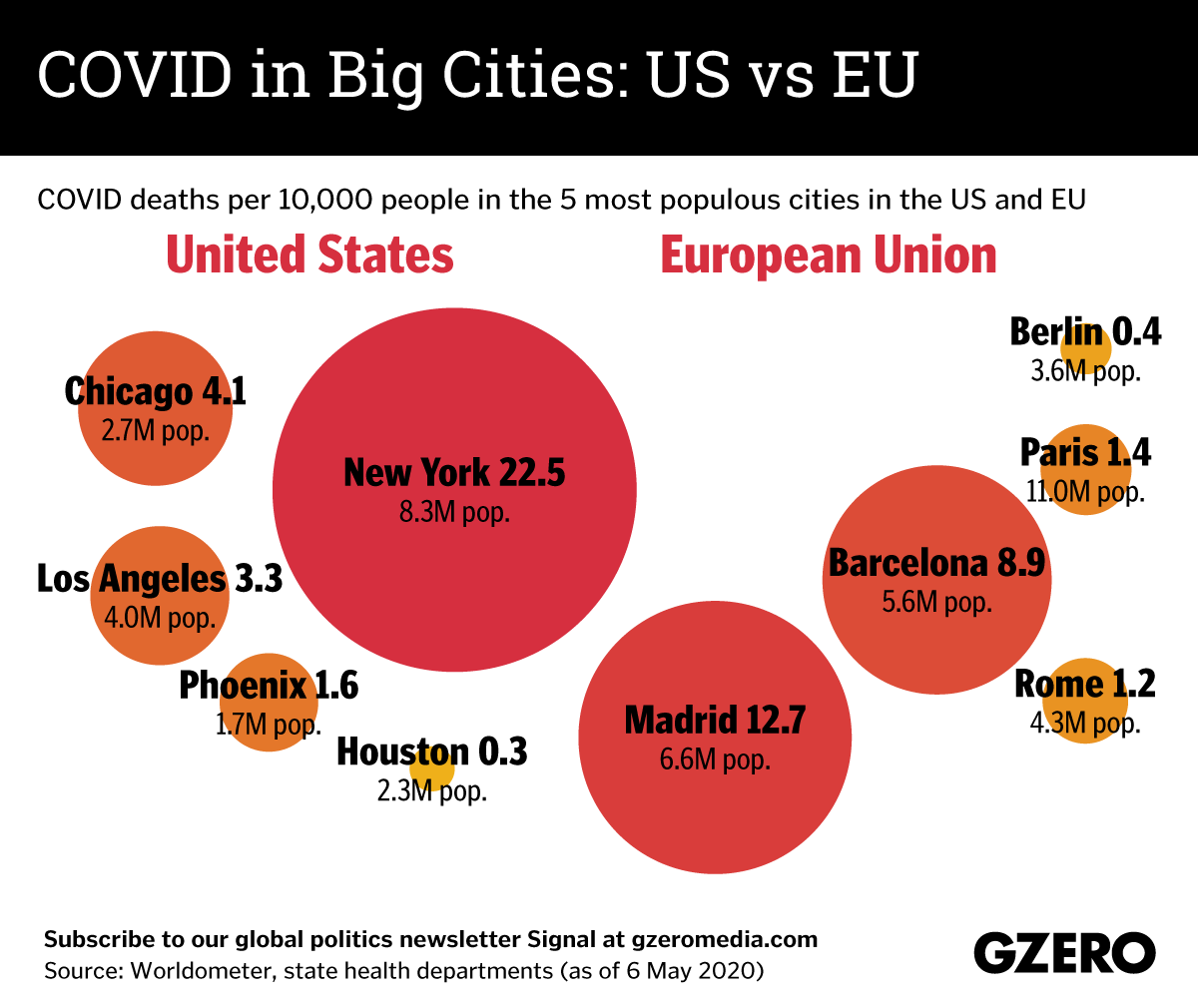May 07, 2020
Much has been made of the fact that the United States now leads the world in the number of coronavirus cases and deaths – and by a big margin. But comparisons between the US and other hard-hit countries like Italy or Spain are dubious because America is one of the most populous countries in the world. Contrasting the outbreak in the United States with the EU as a whole – which has a comparable combined population size – is therefore a more useful way to understand the scope of the virus and how containment efforts are playing out in comparable contexts. But because the pandemic is most severe in urban areas, we've taken a closer look at how COVID-19 death rates compare between the five most populous cities in the EU and those in the US.
More For You
America’s new National Security Strategy confirms what Europeans have feared for months: Washington now sees a strong, unified European Union as a problem to be solved, not an ally to be supported.
Most Popular
Sponsored posts
The power of sports
What's Good Wednesdays
What’s Good Wednesdays™, December 10, 2025
Walmart sponsored posts
Walmart's $350 billion commitment to American jobs
In this episode of Tools and Weapons, Microsoft Vice Chair and President Brad Smith sits down with Ed Policy, President and CEO of the Green Bay Packers, to discuss how purpose-driven leadership and innovation are shaping the future of one of the world’s most iconic sports franchises. Ed shares how technology and community-focused initiatives, from Titletown Tech to health and safety innovations on the field, are transforming not just the game of football, but the economy and culture of Green Bay itself. He explains how combining strategic vision with investment in local startups is keeping talent in the Midwest and creating opportunities that extend far beyond Lambeau Field.
Subscribe and find new episodes monthly, wherever you listen to podcasts.
Members of security forces stand guard outside a polliong station, a week late in a special election, after the local governing party kept voting closed on election day, amid accusations of sabotage and fraud, in a presidential race still too close to call as counting continues, in San Antonio de Flores, Honduras, December 7, 2025.
REUTERS/Leonel Estrada
More than a week after Hondurans cast their ballots in a presidential election, the country is still stuck in a potentially-dangerous post-election fog.
© 2025 GZERO Media. All Rights Reserved | A Eurasia Group media company.
